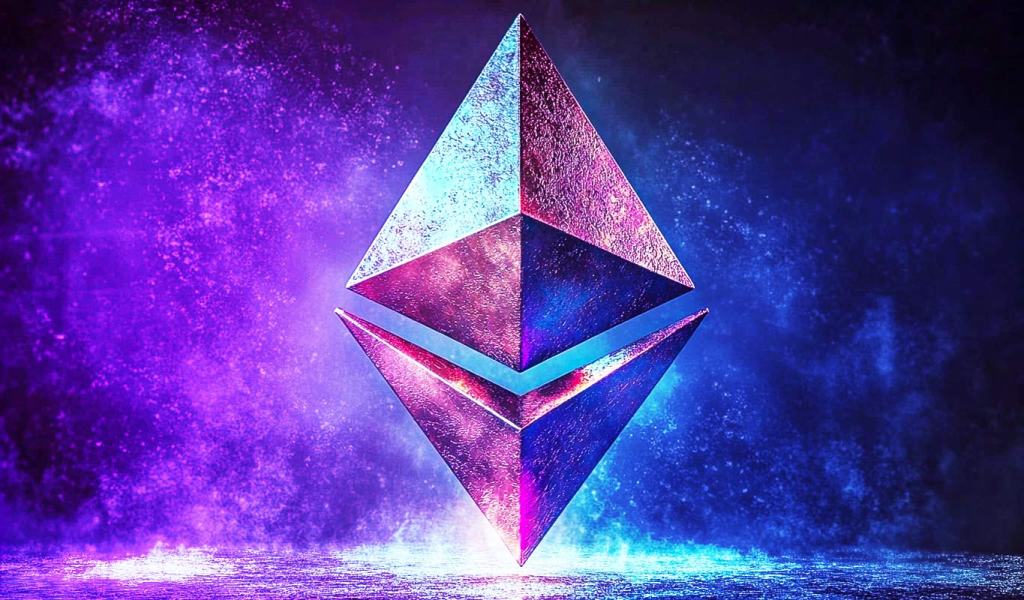Rise by Six: Your Daily Dose of Inspiration
Explore insights and stories that elevate your day.
ETH: How a Cryptocurrency Became the Coolest Kid on the Blockchain
Discover how ETH soared to the top of the crypto world and became the trendsetter of the blockchain revolution!
The Rise of Ethereum: Transforming the Blockchain Landscape
The rise of Ethereum has significantly transformed the blockchain landscape since its inception in 2015. Unlike Bitcoin, which primarily serves as a digital currency, Ethereum introduced the concept of smart contracts—self-executing contracts with the terms of the agreement directly written into code. This innovation has opened new avenues for decentralized applications (dApps), allowing developers to create a myriad of services ranging from finance to gaming on its platform. As a result, Ethereum has become a foundational technology for various sectors seeking to leverage the power of blockchain.
Moreover, the transition to Ethereum 2.0, which aims to enhance scalability and sustainability, further solidifies its position in the market. With the shift from a proof-of-work (PoW) to a proof-of-stake (PoS) consensus mechanism, Ethereum is set to significantly reduce its energy consumption and increase transaction throughput. This evolution not only attracts more developers and businesses but also fosters a robust community dedicated to building and adopting innovative solutions. Consequently, Ethereum continues to lead the charge in shaping the future of the blockchain landscape, making it a pivotal player in the ongoing digital revolution.

What Makes Ethereum the Top Platform for Decentralized Applications?
Ethereum has emerged as the leading platform for decentralized applications (dApps) due to its robust infrastructure and extensive developer community. Unlike other blockchain networks, Ethereum offers a flexible programming language called Solidity, which enables developers to create complex smart contracts that automate processes without the need for intermediaries. This capability has fostered a diverse ecosystem of dApps ranging from finance to gaming, pushing the boundaries of what decentralized technology can achieve.
Moreover, Ethereum's commitment to ongoing upgrades and scalability solutions, such as Ethereum 2.0, further solidifies its position at the forefront of the decentralized application landscape. These enhancements aim to improve transaction speeds and reduce costs, making the platform more accessible for both developers and users. With a strong focus on security and decentralization, Ethereum not only attracts innovative projects but also creates a sustainable environment for long-term growth, solidifying its reputation as the top choice for dApp development.
How Ethereum's Smart Contracts Revolutionized the Way We Transact Online
Ethereum's smart contracts have fundamentally transformed the landscape of online transactions by introducing a self-executing contract framework built on blockchain technology. Unlike traditional contracts that require intermediaries, these digital agreements automate and enforce the terms of the contract directly between parties. This innovation not only reduces reliance on intermediaries, lowering costs and transaction times, but also enhances security and trust. By utilizing a decentralized network, Ethereum ensures that all parties can verify transaction history with complete transparency, making it nearly impossible to alter or manipulate the agreed terms.
Furthermore, the implications of Ethereum's smart contracts extend beyond simple transactions. They enable a wide range of applications, including decentralized finance (DeFi) and non-fungible tokens (NFTs), creating new digital marketplaces and economic ecosystems. With the ability to create complex agreements that automate various processes, businesses are now able to innovate and streamline operations like never before. As this technology continues to evolve, it is clear that Ethereum's smart contracts are not just a trend, but a permanent shift in how we conduct business and transact online.